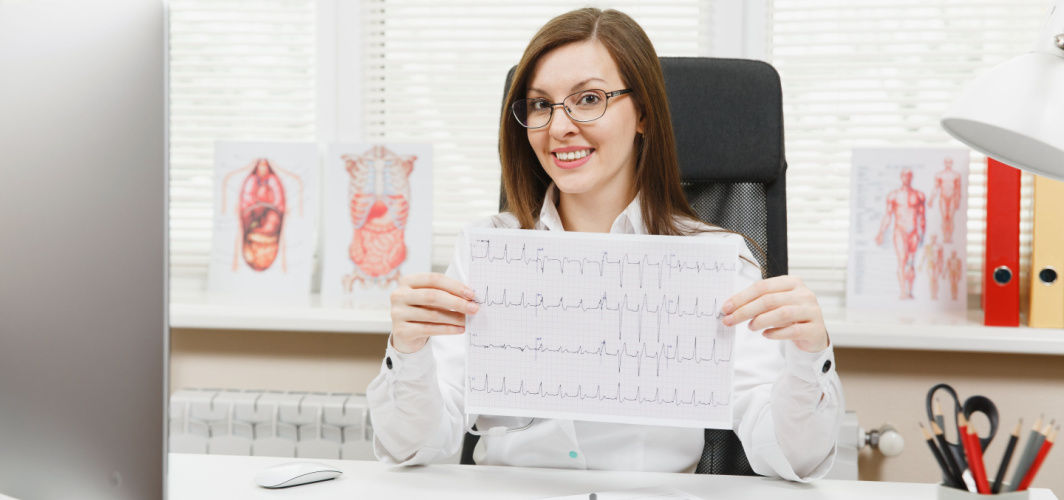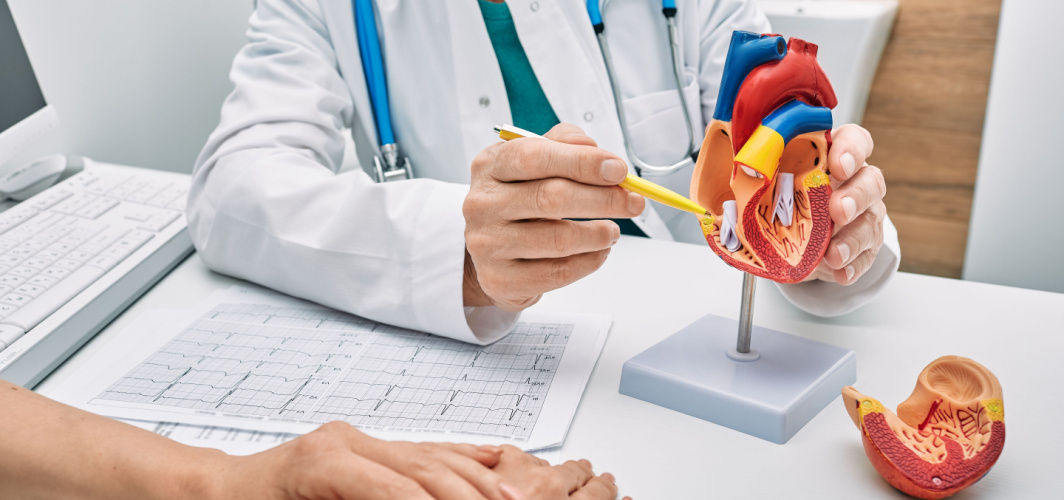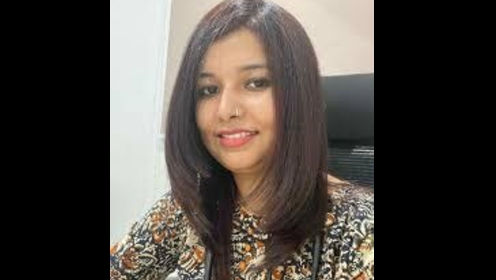Heart Conditions
Recognizing Hypertension: Key Signs and Symptoms
6 min read
By Apollo 24|7,Reviewed by Dr. Divya Chandrasekharan, Verified by Dr. Srividya Kalavagunta, Published on - 12 August 2024
Share this article
0
0 like
.jpg?tr=q-80)
Around 30% of adults in India now suffer from hypertension, a number that has significantly risen due to lifestyle factors. Poor eating habits, lack of exercise, and underlying conditions like diabetes and liver disease can all contribute to this increase. In this article, we will explore the symptoms of hypertension, when to seek medical attention, and how it is diagnosed. Let’s dive into understanding this silent threat and learn how to take control of our health!
What is Hypertension?
Hypertension, or high blood pressure, is when the blood exerts excessive force against the artery walls, posing serious health risks. It forces the heart and other organs to work harder, potentially leading to heart attacks, strokes, and kidney failure. Additionally, it can damage blood vessels in the eyes, limbs, and the brain. Fortunately, it is often preventable and treatable with healthy lifestyle choices and sometimes medication.
Symptoms of Elevated Blood Pressure
High blood pressure is often called the "silent killer" because it usually has no symptoms. However, some people may experience symptoms such as:
- Headaches: Headaches occur due to the narrowing of blood vessels in the brain. Headaches caused by hypertension usually occur at the back of the head or all over the head. It can be throbbing or pulsating in nature.
- Dizziness: In hypertension, the body's ability to regulate blood pressure and blood flow is impaired, leading to dizziness.
- Vision changes: Hypertension can cause damage to the small blood vessels in the retina, leading to vision disturbances.
- Nose bleeds: High blood pressure can damage the blood vessels in your nasal cavity, making them more likely to break and cause nose bleeds.
Symptoms of Hypertensive Emergency
A hypertensive emergency involves a spike in blood pressure over 180/120 mmHg.
Symptoms include:
- Severe headache: Rapid and sudden increase in blood pressure disrupts normal blood flow to the brain, causing severe headaches.
- Vision changes: A rapid and sudden increase in blood pressure can damage blood vessels in the eyes, leading to blurred vision, double vision, or vision loss.
- Chest pain and shortness of breath: Increased workload on the heart and decreased oxygen supply cause chest pain and breathlessness.
- Confusion, seizures, and numbness or weakness: Rapid and sudden increases in blood pressure can cause decreased blood supply to the brain and brain swelling, leading to confusion, seizures, and stroke.
Symptoms of Secondary Hypertension
Secondary hypertension is caused by an underlying medical condition. Signs include a sudden onset of high blood pressure after age 50, severe hypertension that's hard to control with medication, and other symptoms depending on the condition.
- Kidney disease can cause symptoms that may include tiredness, swelling of ankles, feet, or hands, shortness of breath, and blood in urine.
- Diabetes can cause symptoms like increased thirst and hunger, frequent urination, tiredness, and blurred vision.
- Obstructive sleep apnea can cause symptoms such as stopping and starting breathing while sleeping, gasping, snorting, or choking noises, and feeling tired during the day.
- Thyroid problems can cause symptoms like tiredness, weight gain, irritability, and difficulty sleeping.
- Pheochromocytoma can cause symptoms like headache, increased sweating, and palpitations.
When to Seek Medical Help for Hypertension
Seek medical help if you experience unexplained weight change, palpitations, leg swelling, extreme fatigue, abnormal hair growth, new purplish stretch marks, increased breathing difficulty, or chest pain.
People aged 18 and older with optimal blood pressure measured previously and no history of risk factors for heart disease should have a blood pressure test at least once every two years. People aged 40 and older, or younger with an increased risk of high blood pressure, should have a blood pressure test every year. People with high readings or diabetes should monitor their blood pressure regularly and consult their doctor more frequently.
Immediate medical care is needed if your blood pressure exceeds 180 mmHg and you experience severe headaches, blurred vision, chest pain, shortness of breath, numbness or weakness, difficulty speaking, confusion, or seizures. These could indicate a hypertensive crisis, a life-threatening condition.
How is Hypertension Diagnosed?
Some signs our body shows might raise suspicions about high blood pressure. They can be observed by a doctor even before measuring blood pressure. These signs include:
- Distribution of body fat around the abdomen: Weight gain and insulin resistance can lead to an unequal distribution of fat in the body with increased abdominal fat; simply put, your waist size has increased.
- Impaired or decreased muscle strength: A sedentary lifestyle, reduced or lack of physical activity, abnormal blood flow, and poor circulation lead to reduced muscle strength.
- Skin lesions: Underlying conditions like obesity or insulin resistance can cause changes like dark skin patches around the neck, skin tags, and dry skin.
- Alertness: Abnormal blood flow to the brain's blood vessels can affect its functions, reducing alertness.
Blood pressure is measured using two numbers: systolic and diastolic pressure. A normal blood pressure is less than 120/80. High blood pressure is 140/90 or higher. Regular monitoring is essential for detecting and managing hypertension. If readings are consistently high, consult a healthcare professional for diagnosis and treatment.
Your height, weight, and BMI can influence your risk of hypertension. A higher BMI increases the risk. Maintaining a healthy weight and regular check-ups with healthcare professionals can help manage your blood pressure.
Regular or annual health check-ups are vital to pick up blood pressure in an early stage and provide optimal treatment.
How Hypertension Affects the Eyes
Hypertension can affect your eyes by damaging the blood vessels, leading to conditions like hypertensive retinopathy, hypertensive choroidopathy, hypertensive optic neuropathy, and ocular hypertension, a risk factor for glaucoma. Using an ophthalmoscope, a doctor can pick up signs like:
- Narrowing of arteries of eyes
- Bleeding in the retina
- Swelling of nerve in the eye
How Hypertension Affects the Heart
High blood pressure makes the heart work harder to pump blood, causing the muscle of the heart's left ventricle to thicken. Signs include:
- Rapid heart rate - occurs due to increased workload on the heart
- Palpitations - occur due to increased workload on the heart
- Increased second heart sound - indicative of pulmonary hypertension
- Bluish skin discoloration - poor blood circulation can cause reduced oxygen supply, leading to bluish skin discoloration.
Long-term high blood pressure may lead to an enlarged heart, heart failure, and ischemic heart disease.
Conclusion
High blood pressure, or hypertension, can silently damage your heart, blood vessels, kidneys, and brain, leading to serious health issues. Early detection of hypertension through regular monitoring allows for prompt intervention, reducing severe health risks. Lifestyle modifications like maintaining a healthy weight, regular exercise, and reducing salt intake are vital for preventing and controlling high blood pressure and complications. Regular blood pressure checks are essential, especially if you have headaches, dizziness, or fatigue. Regular check-ups are critical to early detection and management of hypertension. Healthy habits, including regular exercise, a balanced diet, and stress management, can significantly lower blood pressure.
Apollo 24|7's lab tests and doctor consult services provide easy access to monitoring and expert advice, ensuring you maintain a healthy lifestyle and manage your blood pressure effectively. Prioritize your well-being and embrace a healthy lifestyle for a better future.
Services
Heart Conditions
Consult Top Cardiologists
View AllLeave Comment
Services
Recommended for you

Heart Conditions
Know About Echocardiogram: Echo Tests, Procedures, Preparation And Reports
An echocardiogram, also known as an "echo," is a specialised scan that examines the heart and nearby blood vessels. It helps diagnose heart conditions and guides minimally invasive procedures like fixing blocked arteries or replacing faulty valves. Echocardiograms provide crucial information necessary for accurate treatments, leading to improved heart health and patient outcomes.

Heart Conditions
Alcohol & Heart Health: How Much is Safe to Drink?
Excessive consumption of alcohol is associated with an increased risk of high blood pressure, heart failure, stroke and other complications.

Heart Conditions
7 Signs You Need To Visit A Cardiologist
Don’t know whether or not you should see a cardiologist? Well, keeping an eye out for certain signs of heart problems is the best way of maintaining good cardiac health.
Subscribe
Sign up for our free Health Library Daily Newsletter
Get doctor-approved health tips, news, and more.
Visual Stories

Can Processed Meat Increase the Risk of Chronic Diseases?
Tap to continue exploring
Recommended for you

Heart Conditions
Know About Echocardiogram: Echo Tests, Procedures, Preparation And Reports
An echocardiogram, also known as an "echo," is a specialised scan that examines the heart and nearby blood vessels. It helps diagnose heart conditions and guides minimally invasive procedures like fixing blocked arteries or replacing faulty valves. Echocardiograms provide crucial information necessary for accurate treatments, leading to improved heart health and patient outcomes.

Heart Conditions
Alcohol & Heart Health: How Much is Safe to Drink?
Excessive consumption of alcohol is associated with an increased risk of high blood pressure, heart failure, stroke and other complications.

Heart Conditions
7 Signs You Need To Visit A Cardiologist
Don’t know whether or not you should see a cardiologist? Well, keeping an eye out for certain signs of heart problems is the best way of maintaining good cardiac health.

